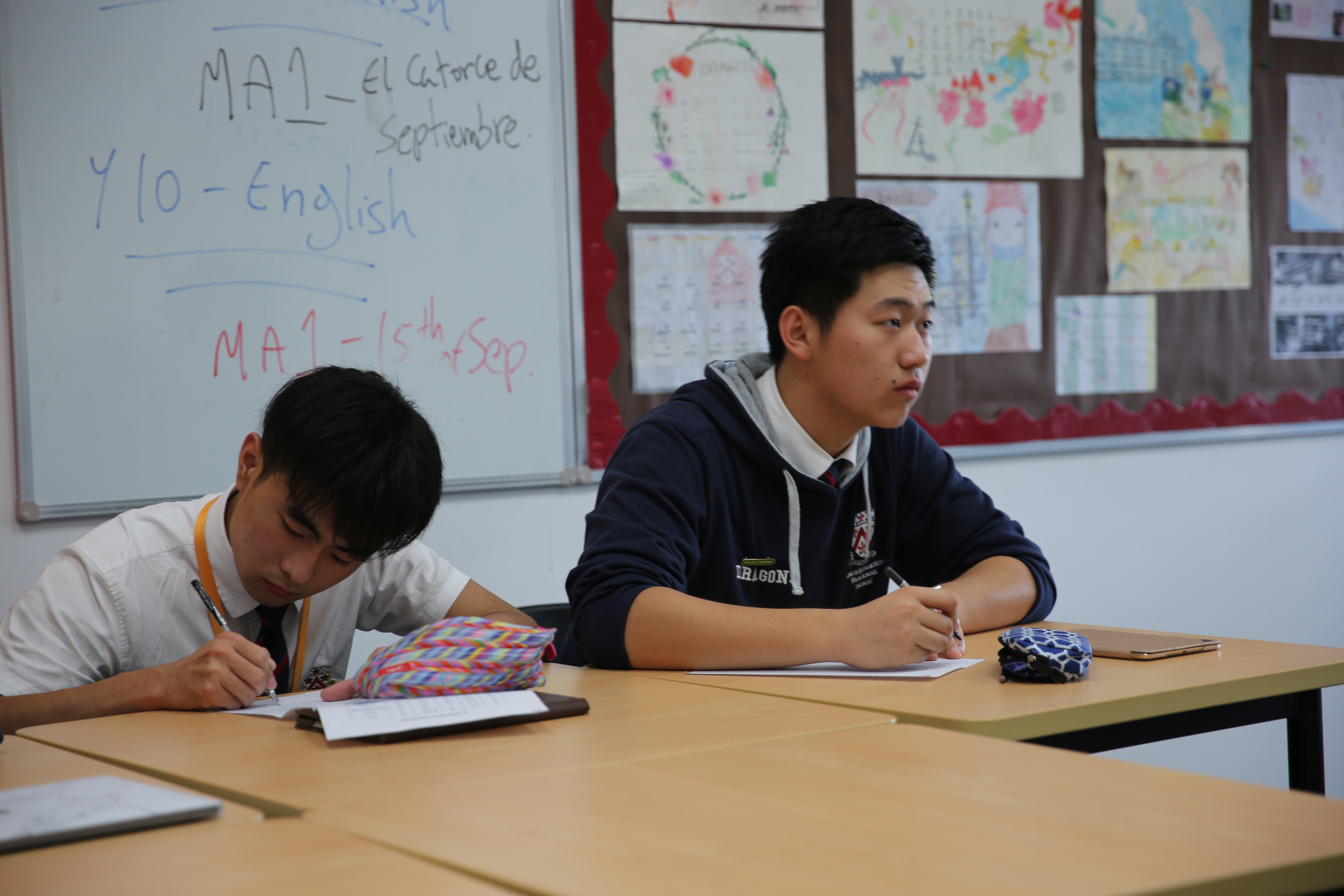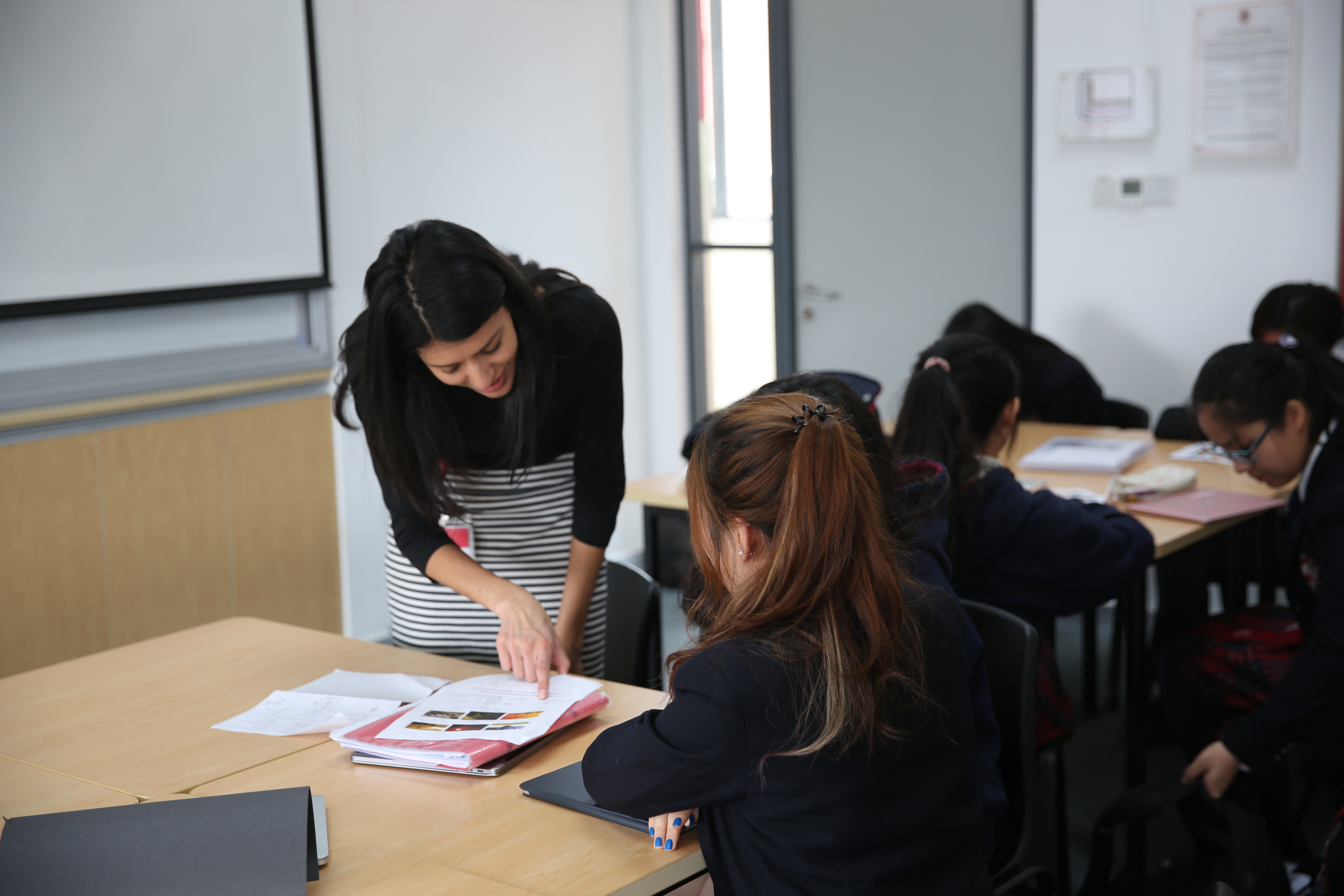Learning Principle 6 | Hetal Ascher

Learning Principle 6: Learners communicate verbally and non-verbally with authenticity and a clear purpose
This Dulwich International High School Suzhou Learning Principle is focused on the essential skill of communication. We know that for our students to reach their full potential, they must be skilful communicators. At Dulwich International High School Suzhou, we develop our students’ ability to communicate with authenticity and purpose. In all student communication, be that in English, Chinese, or Spanish, our teachers expertly help students understand the importance of non-verbal elements, such as body language and facial expression. Developing such skills is an essential purpose of our compulsory drama curriculum.

In English class, in year 10 and 11, students focus on the heart of communication by considering factors such as audience, purpose, and register. They consider who they are communicating with and why they are communicating with that person. Subsequently, they are able to make their language choices to decide whether to write or speak formally or informally. On the IGCSE English as a Second Language exam, students must use these skills to write an informal letter and a formal article. More importantly, these skills are also valuable to our students in their future careers and even their personal lives.

In a year 13 English course, students learn to communicate in a sophisticated and academic way through the creation of a research project. Students carry out first-hand research on an issue related to the school through means such as interviews and surveys. They carefully consider the impact of their word choice, sentence structure, and even language of delivery in order to ensure unbiased results. The project concludes in students giving poster presentations similar to those at professional conferences.
A vital and distinctive part of our work at DHSZ is to create a school environment where our students feel comfortable, confident and supported in spoken English. This enables the additional authentic practice of the skills developed in class. We kick start this process with the STEAM project in year 10 and then continue to provide students with many rich opportunities to communicate inside and outside of class. For example, this year, our head prefects implemented the ‘English only Friday’ policy. Although it is highly challenging for most students, the majority understand the value of practice and work hard to converse in English with their classmates and teachers.

Another addition this year is a lecture corner organized by the Reading Promotion Club. At this lecture corner, students are welcome to give a short talk about a topic of their choice. Leo, a year 12 student, pictured, says that “we believe sharing what you have read or learnt can let people learn from each other, probably things you might never get to learn in life.” For example, year 10 student, Ivan, gave a talk entitled, “Coincidence” based on the novel “Sapiens – a Brief History of Humankind.” The students sign up ahead of time and the students of the Reading Promotion Club work with the speaker to help make their presentation more engaging. In this way, students at DHSZ support each other to develop their communication skills.

The main way for parents and family members to support this learning principle is through encouragement.
For example, they can encourage students to join in with the opportunities available, both inside and outside of the classroom. Many students, especially younger students, initially feel scared to participate in English activities. To support these students, parents can encourage their children not to worry too much about making little mistakes and being embarrassed, and that it is more important to be brave and participate.






